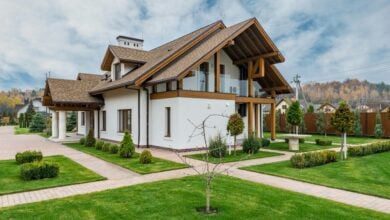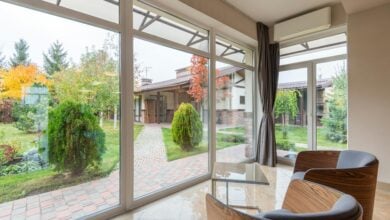It’s no secret that good design is essential for a business. But many business owners don’t realize that the HVAC needs of their design are as important as the aesthetics. Poor HVAC services can ruin a well-designed office, and a beautiful home can be made unbearable if the HVAC system isn’t working properly. That’s why it’s so important to work with an experienced HVAC company that can help you consider all of the needs of your design.
What Are the Most Common HVAC Systems?
There are a few different HVAC system types that are most commonly used in businesses and homes. The best system for you will depend on a couple of factors, such as the size of your building or home, the climate in your area, and your budget.
Here are some of the most common HVAC systems:
Central air conditioning
This type of system is most commonly used in homes and small businesses. It includes an outdoor unit that houses the compressor, condenser, and evaporator and one or more indoor units that circulate the air throughout the building.
Ductless mini-split system
This system is becoming more and more popular, especially in homes with limited space. It consists of an indoor unit that mounts on the wall or ceiling and an outdoor unit.
Packaged terminal air conditioner (PTAC)
This system is commonly used in hotels and other commercial buildings. It includes an outdoor unit that houses the compressor, condenser, and evaporator and one or more indoor units that blow the conditioned air into the room.
Basic Principles of HVAC System Designs
There are four HVAC basic principles to consider when designing an HVAC system:
1. Thermal comfort
The design of the HVAC system should maintain a comfortable temperature and humidity level in the space.
Two factors determine thermal comfort: air temperature and relative humidity. The American Society of Heating, Refrigerating, and Air Conditioning Engineers (ASHRAE) has developed standards for acceptable thermal comfort levels in office spaces.
The air temperature should be between 68°F and 76°F (20°C and 24°C) for most office environments. The relative humidity should be between 30% and 60%.
If the temperature or humidity levels are outside these ranges, employees may be uncomfortable, and productivity may suffer.
2. Air quality
Indoor air quality is a significant concern in office spaces because poor air quality can lead to many health problems, including headaches, dizziness, nausea, and respiratory infections.
Several factors contribute to indoor air quality, but the two most important are ventilation and filtration.
- Ventilation: The process of exchanging indoor air with fresh outdoor air. The amount of ventilation required depends on the size of the space, the number of people in the room, and the type of activities conducted in the space.
- Filtration: The process of removing particles from the air. The most common type of filter is the mechanical filter, which removes particles by trapping them in a mesh screen.
3. Acoustical comfort
A well-designed HVAC system produces low noise levels in the space.
Noise can be a substantial source of discomfort in office spaces, leading to decreased productivity. There are two types of noise to consider when designing an HVAC system:
- Airborne noise – This is the noise created by air movement through the ducts and registers.
- Structure-borne noise – This is the noise caused by the vibration of objects in the space.
The best way to reduce airborne and structure-borne noise is to use sound absorbent materials in the HVAC system.
4. Energy efficiency
Energy efficiency is a significant concern in designing HVAC systems because heating and cooling account for a large portion of a building’s energy use. A well-designed HVAC system minimizes energy consumption. There are several ways to make an HVAC system more energy-efficient, including:
- Using high-efficiency equipment
- Using programmable thermostats
- Optimizing the airflow in the space
- Insulating ducts and pipes
How an HVAC Company Helps Design Your HVAC System
If you are considering designing your own HVAC system, it is necessary to consult an HVAC company first. They can help you avoid costly mistakes, and they can ensure that your system meets all of the requirements.




